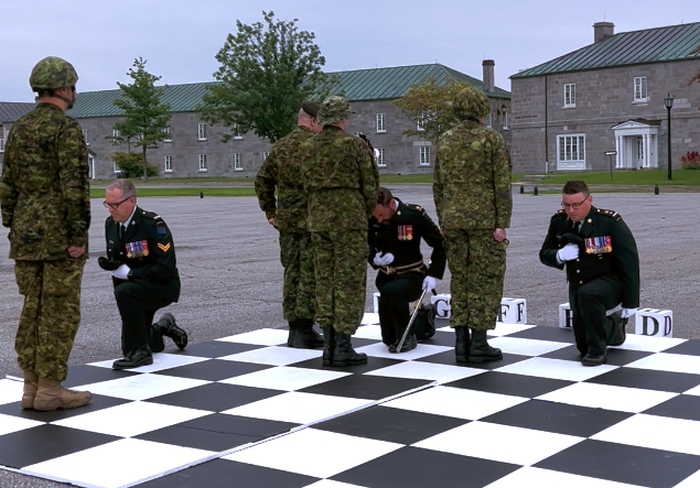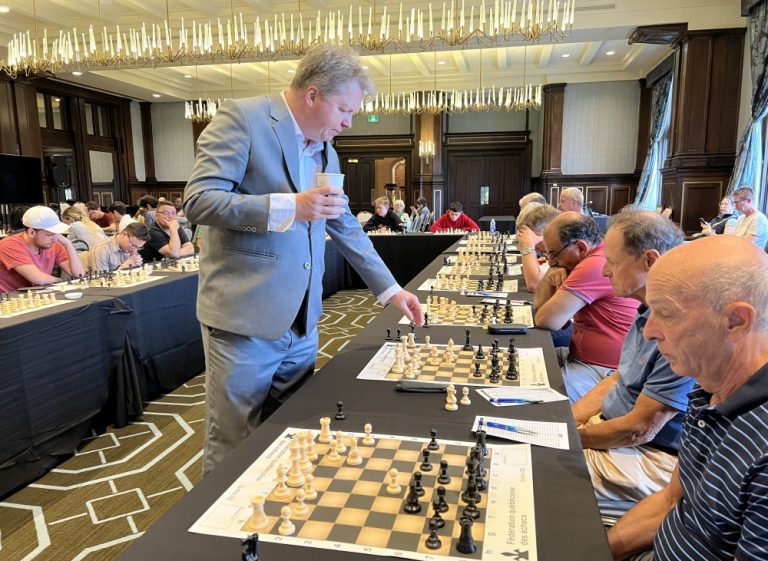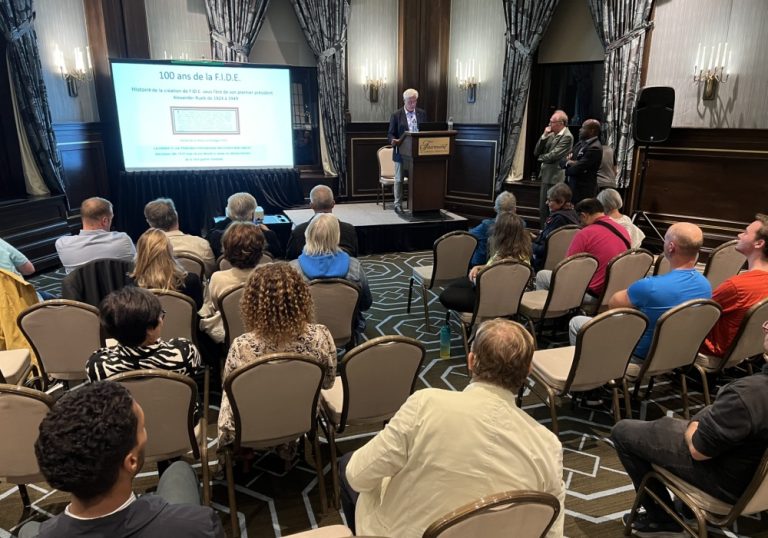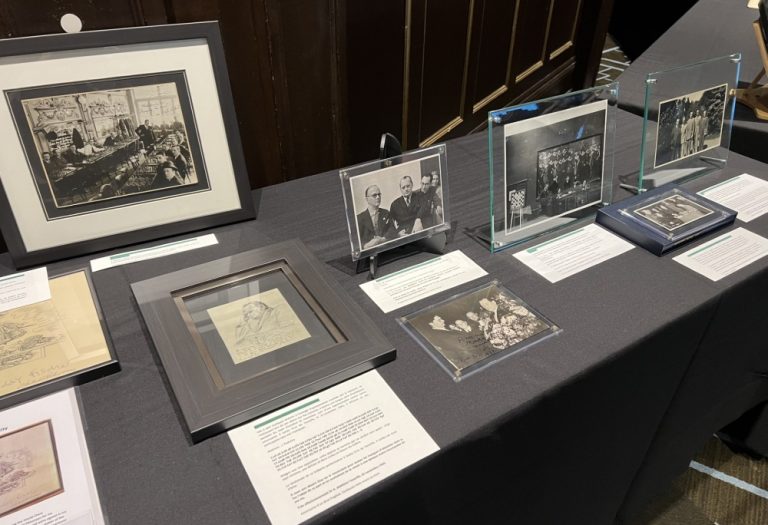Text and photos by WGM Anna Burtasova
In April, alongside the FIDE Candidates, the centenary celebrations of the International Chess Federation took place in Toronto. In August, the festivities moved to another part of Canada, the historic Quebec City. Founded in 1608 by explorer Samuel de Champlain, Quebec City is unique in North America with its fortifications, narrow streets, and 400 years of architecture. Besieged five times, it was finally conquered by the British in 1759. Initially the capital of New France, then of British North America, it is now the heart of French culture on the continent.
The Royal 22nd Regiment hosted a beautiful ceremony at the Citadelle of Quebec, part of the city’s fortifications, on Sunday, August 18. The event began with a torch relay for the Chess Olympiad, which starts in less than a month in Budapest. Members of the Regiment carried the torch through the Citadelle’s entrance and handed it to the President of the Quebec Chess Federation, Eric Bopala. He took it to the square inside the fortifications and passed it to the Mayor of Quebec, Bruno Marchand, and Deputy Chair of the Management Board, Dana Reizniece-Ozola. You can follow the whole way the torch made through the video on FIDE Twitter.

Mayor Bruno Marchand lit the cauldron and poetically remarked on the significance of the FIDE 100 celebrations in his city: “Chess represents something bigger than the game itself. It’s about universality; it’s a language that brings people together.”
Dana Reizniece-Ozola added: “It is very symbolic that we have lit this cauldron here in the Citadelle because it shows the strong correlation between chess and the military. It represents a mindset of strategic and tactical thinking and strong discipline. There is no easy way to success; you need to work hard. You are as strong as your weakest spot in the position, and there are many other similarities, like honoring and respecting your opponent.”

After the torch ceremony, members of the 22nd Regiment acted as human chess pieces and reenacted the final moves of a game between Wilhelm Steinitz and Emanuel Lasker from the 1894 World Championship Match. Lasker won this game and eventually the match to become the second world chess champion. The representation was both artistic and military-serious. The public was especially impressed by the ending when all the men representing the white pieces went down on one knee in resignation. The action was supported by the Regiment’s orchestra. The Regiment’s mascot, the legendary goat, was also present, standing very still and contemplating the moves in front of him.
The ceremony was attended by Lieutenant Colonel Regis Bellemare, the guardian angel of military chess in Canada, President of the International Association of Francophone Chess (AIDEF) Patrick Van Hoolandt, FIDE Continental President for Africa Tshepiso Lopang, President of the Chess Federation of Canada Vlad Drkulec, grandmasters Nigel Short and Evgeny Bareev, among other distinguished guests. Many participants of the Francophonie Championship (RIDEF), which was running concurrently, were also in the audience. The final round will commence on Tuesday, August 20, to determine the winners.

Later that same day, grandmasters Nigel Short and Evgeny Bareev gave simultaneous exhibitions at the city’s landmark, the magnificent Chateau Frontenac. Each took on more than a dozen opponents, and some managed to walk away with draws or wins.
After a busy day dedicated to FIDE’s centennial celebrations, the 2024 Francophonie Blitz Championship was held in the evening at Laval University. Canadian GM Shawn Rodrigue-Lemieux became the 2024 Francophonie Blitz Champion, and Canadian WGM Maili-Jade Quellet won the first women’s prize.

On Monday, the events dedicated to FIDE 100 continued. An open-for-public conference, moderated by Patrick Van Hoolandt and presented by chess historians Georges Bertola and Guy Gignac, took place in Château Frontenac. It focused on the creation of FIDE under the inaugural presidency of Alexander Rueb, from 1924 to 1949.
An exhibition of artifacts connected to the life and work of world champion Alexander Alekhine also took place that evening. Some unique items on display had never been unveiled to the public before.

Earlier that same day, the Francophonie Rapid Championship took place. GM Christian Bauer (France) was crowned champion, with WGM Maili-Jade Quellet (Canada) taking the women’s prize.